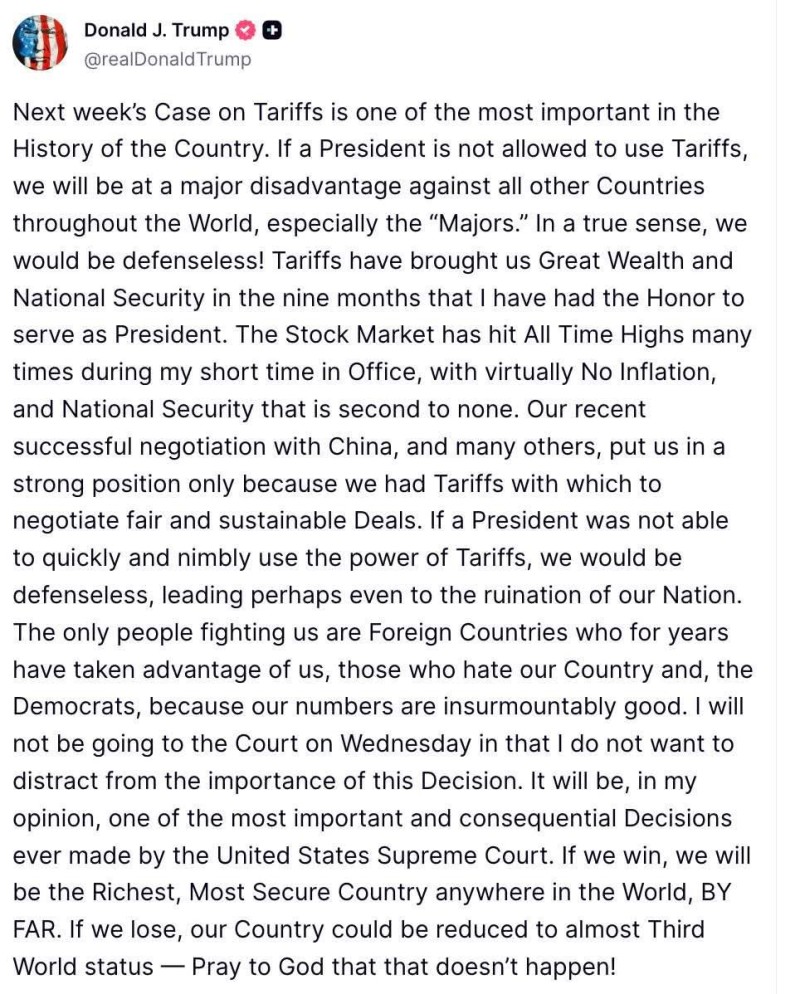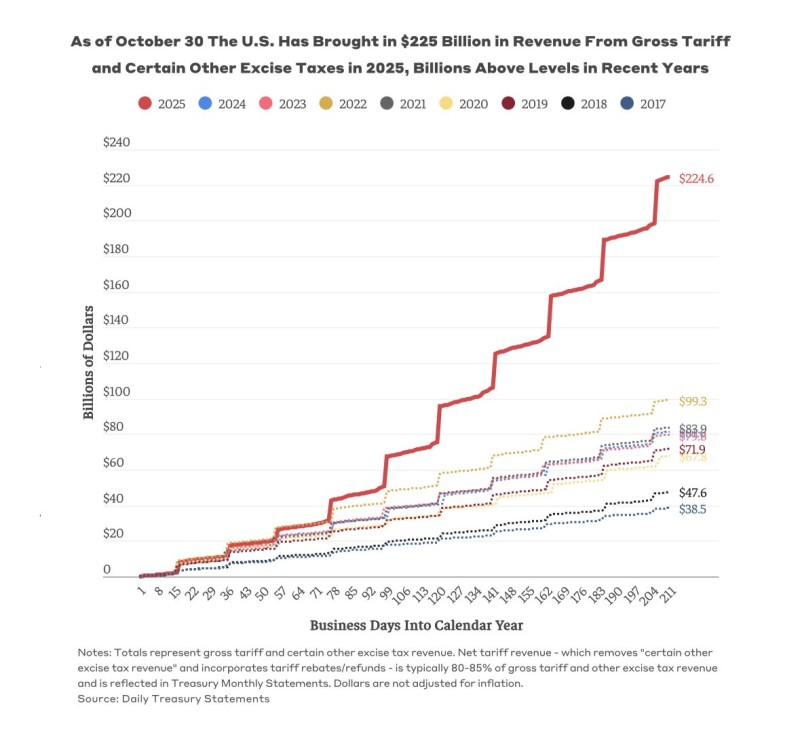A political storm is brewing in Washington as Donald Trump warns that an upcoming Supreme Court decision could determine America's economic future. In a lengthy statement, the former president argued that tariffs are essential for national security and prosperity, claiming that without them, the country risks decline into "Third World" status.
His remarks come at a moment when U.S. tariff revenue has hit record highs in 2025, yet the national debt has swelled to $38.1 trillion, raising serious questions about America's long-term fiscal health.
Trump's Message: Tariffs as America's "Shield"
Trump positioned tariffs as the foundation of his "America First" economic approach, crediting them with strengthening the stock market, keeping inflation manageable, and giving the U.S. leverage in trade talks, especially with China. As trader RobynHD observed, these figures represent gross receipts, and after accounting for refunds and rebates, the effective government gain typically runs between 80 and 85 percent of the total.

"Tariffs have brought us great wealth and national security," Trump wrote, arguing that stripping a president's authority to impose them would leave America vulnerable against global competitors. He called next week's court case potentially "one of the most consequential decisions in U.S. Supreme Court history," warning that defeat could lead to national "ruination."

His message was stark: "If we lose, our Country could be reduced to almost Third World status — pray to God that doesn't happen."
Tariff Revenues Hit Record Levels
Treasury data backs up Trump's claim about surging tariff income. As of late October 2025, gross revenue from tariffs and excise taxes reached $224.6 billion, dramatically outpacing previous years: 2025 stands at $224.6B, compared to $99.3B in 2024, $93.8B in 2023, $67.3B in 2019, and just $38.5B in 2017. The numbers show a sharp, steady climb throughout the year, pointing to tougher trade enforcement and higher import duties. The growth rate exceeds anything seen in the past decade, making tariffs a significant revenue source under recent policy.
Debt Growth Dwarfs Revenue Gains
Despite record tariff inflows, the bigger picture is less encouraging. The U.S. national debt now sits at $38.1 trillion, roughly $111,659 per citizen. More troubling still, the country added $610 billion in new debt just in October, nearly three times the entire year's tariff revenue. This gap exposes the limits of tariff-based income when it comes to closing persistent federal deficits. Economists caution that leaning too hard on tariffs can fuel inflation and damage trade relationships while doing little to address the real problem: chronic federal overspending.
The Supreme Court Case: Power and Precedent
The case before the Court asks whether presidents can impose tariffs unilaterally, without congressional sign-off. Trump insists that limiting this power would weaken America's negotiating position globally, while critics worry that unchecked executive authority invites economic chaos and trade wars. The ruling could reshape how future administrations wield economic power in an increasingly fractured global trade environment.
 Victoria Bazir
Victoria Bazir

 Victoria Bazir
Victoria Bazir


